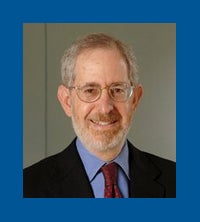Major Step for Puerto Rico: Professors Play Key Role in Landmark Debt Deal

Amid a long-running financial crisis aggravated by recession and the ravages of hurricanes Maria and Irma, Puerto Rico and its bondholders have reached a deal that will bring billions of dollars of relief to the island’s economy, thanks in substantial part to two UCLA School of Law professors.
Daniel Bussel and Kenneth Klee were appointed in 2016 to advise on a complex and hotly contested restructuring of $18 billion in bond debt and a related tussle over Puerto Rico’s sales tax.
In February, the court approved the deal that Klee and Bussel helped forge — among the largest debt restructurings in U.S. history — balancing the interests of the island territory, thousands of bondholders and the government-owned corporation, known as COFINA, that issued the bonds.
“The successful resolution of COFINA is the first great stride forward in resolving Puerto Rico’s financial morass,” says Bussel, referencing the aggregate $72 billion in bond and pension debt that has burdened the government of the island.

Bussel worked on the case while handling a full schedule of teaching and other obligations. A former law clerk to then-Judge Stephen Breyer on the U.S. Court of Appeals for the First Circuit and Justice Sandra Day O’Connor on the U.S. Supreme Court, Bussel joined the UCLA Law faculty in 1991 and is a nationally renowned professor of bankruptcy law.
Klee, who began teaching at UCLA Law in 1979, is a former associate counsel to the House Judiciary Committee who helped draft the U.S. bankruptcy code.
Both are partners at the Century City insolvency law boutique Klee, Tuchin, Bogdanoff & Stern. UCLA Law alumnus and KTB&S partner Jonathan Weiss ’11 also did vital work on the case, in which Bussel and Klee advised Bettina Whyte, the agent for COFINA.
While Bussel and Klee have worked on scores of major corporate and municipal bankruptcies — including the $4 billion filing of Jefferson County, Alabama, home of Birmingham, in 2011, and the then-record $1 billion filing of Orange County, California, in 1994 — this matter was unlike anything that they had seen.
Puerto Rico issued the bonds in 2007 to provide critical financing after 1990s legislative and tax reforms caused companies to take their business elsewhere. The bonds were backed by a new sales tax, and major bondholders included powerful New York hedge funds, tax-exempt mutual funds and individual investors, including many local pensioners.
In 2016, Puerto Rico — with the local economy still sluggish, its budget in crisis, facing massive bond debt and unfunded pension liabilities, and unable to borrow anymore in capital markets — found itself in jeopardy of defaulting on the bonds and filed for relief.
Complicating things further, the governing law was a new federal statute, known as PROMESA, which Congress enacted specifically to manage Puerto Rico’s debt crisis. Puerto Rico, while a territory of the United States, is not subject to the U.S. bankruptcy code.
Then, in 2017, Irma and then Maria hit, with Maria devastating the island. The storms caused a pause in the COFINA restructuring work but also upped the pressure to devise a successful solution.

“It’s certainly among the most complex cases I’ve had,” says Klee, who retired from UCLA Law in 2015.
“When you have political elements involved, it makes the cases more difficult because you’re dealing not only with dollars-and-cents issues,” Klee says. “You have federal and territorial sovereignty interests that conflict here, and some enormously thorny legal issues having to do with the interaction of a newly crafted federal statute with the municipal bond industry and the Puerto Rican economy and culture.”
In February, U.S. District Judge Laura Taylor Swain approved a restructuring plan. Under the terms of the agreement, Puerto Rico receives about $6 billion in debt relief. Senior bondholders will recover approximately 93 percent of their investment, while junior bondholders will receive approximately 55 percent. Going forward, the Commonwealth of Puerto Rico and COFINA will share sales tax receipts in an agreed ratio negotiated between the commonwealth and Whyte on behalf of COFINA.
Shortly after the court approved the deal, Puerto Rico issued $12 billion in restructured COFINA securities, representing the territory’s first return to the capital markets since its financial crisis precipitated default.
Whyte, the celebrated corporate restructuring specialist who, as the COFINA agent, tapped Bussel and Klee, says that the case was a thicket.
“At midnight, when I needed a question answered, the first person I called was Dan Bussel,” she says.
“My job was to try to settle it, but it wasn’t a clear-cut path,” Whyte says. “It took calm, steady hands. … And the calm, steady hands came from Dan and Ken, and that meant the world to me and to the process. Their legal prowess and their calmness throughout this process really lent the ability to come to a resolution.”